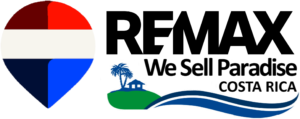Short Term Rental (eg Airbnb) Legal Obligations

SHORT TERM RENTAL LAW AND REGULATIONS
Dear clients and friends involved in real estate short-term vacation rentals, short-term rentals’ intermediaries, and/or on short-term vacation rentals` promotion and management through digital platforms:
The Law number 9742 “Law for the Non-Traditional Lodging Activities and their Intermediation Through Digital Platforms” (hereinafter the Law), began applying in Costa Rica on June the 1st, 2020 and the application of several of its stipulations was pending until the corresponding Regulations (hereinafter the Regulations) were issued by the Costa Rican Institute of Tourism (hereinafter ICT).
The above referred regulations were issued by the ICT and started applying on October the 21st, 2021.
The following is a summary of the main points of the Law:
Purpose of the Law:
- Regulate the non-traditional, touristic lodging activities and the platforms used to commercialize or in any way intermediate on those services.
- Protect the rights of the users of those services.
Applicability:
- To property owners (individuals or entities) regularly carrying out on their own behalf and for business purposes, short-term leases (non-traditional touristic lodging) with a duration not shorter than 24 hours and not longer than 1 year. Said activity could be commercialized individually, directly, or through their own or third party intermediation platforms (hereinafter the Owners).
- To companies (with domicile in Costa Rica or abroad) participating in the promotion, marketing, organization, intermediation, etc. of non-traditional touristic lodging activities which may also actively participate on the collection of clients` payments, all of these through digital platforms used to link the services` providers with the end users/clients (hereinafter the Companies).
Touristic activities subject to the Law:
Recreational, vacation, leisure or business activities carried out in places different from one`s domicile with a duration not shorter than 24 hours and not longer than 1 year. The ICT is authorized by the Law to enter into collaboration agreements with the Companies to obtain from them information covered by the Law in relation to this non-traditional, touristic lodging activity, the properties and Owners they work with, etc.
The Tax office can also enter into agreements with the Companies to obtain information for the charging and collection of taxes related to these activities from the different parties involved according to the Law.
The end users/clients have the right to:
- Receive clear information regarding the services offered to them.
- Receive back up documents including terms of services hired and payment receipts.
- Receive the services in accordance to what was paid for and offered to them.
- Have access to the services opened to the general public and to the internal rules and regulations without any kind of discrimination.
- Enjoy the services under safe conditions for them and for their belongings, and receive clear information about any risks derived from the normal use of the property and the recommended security measures to be followed.
- File complains before the ICT.
- Keep their personal information given to the Owners and/or to the Companies protected and confidential.
The end users/clients shall:
- Follow and comply all the internal rules, including when applicable condominium regulations.
- Pay the price agreed for the services.
- Respect the check in and check out dates and times.
- Make responsible use of the premises and be responsible for any damages caused, or for breach of compliance of services` agreement and rules previously disclosed.
The Owners have the right to:
- Obtaining the touristic sustainability certificate from the ICT having complied with the corresponding
requirements. - Have access to activities organized by ICT for promotion of tourism.
The Owners shall:
- Get registered at the ICT.
- Get registered at the Tax Office for the payment of the corresponding taxes applicable to the activity.
- Issue electronic invoices.
- Offer their services in adequate conditions for touristic purposes.
- Always look for the clients` safety, privacy and comfort.
- Allow clients` access and stay without incurring in any discrimination.
- Not use any abusive clauses on their agreements with clients.
- Provide cleaning services of the premises.
- Provide access to full bathrooms for clients.
- Adequately maintain the premises.
- Adequately dispose of solid waste.
The Companies shall:
- Get registered at the ICT
- Get registered at the Tax Office for the payment of the corresponding taxes applicable to the activity.
- Provide to the corresponding Governmental offices, the information requested regarding the Owners registered on their platforms. The above only for judicial, tax or safety purposes but always complying with the data privacy regulations.
- Hold back and pay to the tax office the taxes that apply to the corresponding lodging activity in case the Companies receive through their platform the clients` payments to be made to the Owners. The Companies will be considered jointly responsible for unpaid taxes in the above-mentioned case.
- Include on their platforms information regarding the Owners` obligations as per the Law.
- Indicate on their platforms if the non-traditional lodging facilities comply with the Law number 7600 (Law for the protection of rights of disabled people)
Provisions
The Owners that are duly registered at the ICT and that also live on the same property being rented, will be released from the requirement of compliance with Law number 7600 (Law for the protection of rights of disabled people).
The ICT will create a digital registry of the Owners as well as of the Companies. Said registry will be available for public consultation always respecting the personal data privacy rights of the Owners.
The ICT can verify the Owners carrying out the activities regulated by the Law with the Companies based on their platforms, etc.
The ICT shall periodically send the information of the above referred registry to the Tax office.
The Owners can market their own non-traditional lodging services.
It will be considered an illegal exercise of the non-traditional lodging services when the Owners:
- Use hotel terminology that could generate confusion to the clients or on the market.
- Carry out the activity without being registered at the ICT or in any way breach this Law or its Regulations.
The sanction(s) will be the ones established on the Costa Rican general laws for the illegal practice of commercial activities and the Tax Office, the Health Ministry and the corresponding Municipality will be entitled to demand compliance and apply the corresponding sanction(s).
The non-traditional lodging services regulated on the Law are allowed to operate in residential zonings. This is allowed as long as said activity doesn’t affect neighbors and surroundings.
Transitional Provisions of the Law:
- The Owners shall get registered with the ICT within a one year term counted from the date in which the Law is in force and effect, hence one year counted from June the 1st 2020. **PLEASE KEEP IN MIND THAT THE REGISTRATION COULD NOT BE MADE BUT UNTIL THE ICT ISSUED THE REGULATIONS TO THE LAW WHICH WERE NOT IN EFFECT BUT UNTIL OCTOBER THE 21st 2021.
- During the first 2 years of applicability of the Law, counted from June the 1st, 2020 (until June the 1st, 2022) the Owners won`t need to have their properties comply with the Chapter 4 of the Law number 7600 (Law for the protection of rights of disabled people)
- The ICT shall have the registry of Owners and Companies created and working within a 6 months` term counted from June the 1st, 2020. **PLEASE KEEP IN MIND THAT THE REGULATIONS NEEDED FOR THE CREATION OF THE REGISTRY WERE NOT IN EFFECT BUT UNTIL OCTOBER THE 21st 2021.
Summary of the main points of the Regulations:
Purpose of the Regulations:
- Regulate the non-traditional, touristic lodging services.
- Establish the requirements for the creation of the ICT Registry of Owners and Companies as well as its management and updating procedures.
- Determine process to transfer information from the ICT to the Tax Office for tax control purposes.
Updates
The Owners and the Companies shall update their registered info when their services` conditions vary in any way. The update must be made within the following month. The updates shall be made on the ICT system using the Owners` or the Companies` user code. This code is provided by the system with the original registration.
The Registry shall be made through the ICT web site http://www.ict.go.cr
Once an Owner or a Company has made its registration request, the ICT will have a term of 15 days to review the information. An email will be sent with a recording resolution and a user code. 5 working days after that, the ICT will show the registration on its website. In the event the ICT was to require more information or made clarification requests, said requests shall be made by the ICT within a term of 10 days. The 10 days will be counted from the filing of the registration petition. In case the ICT was to deny the registration, the interested party will have the right to file a revision and an appeal within 3 days counted from the notification of the negative resolution.
De-registration
An Owner or a Company can also request a de-registration if the activities are not being carried out any more by using the same user code.
The Regulations started applying upon their publication date, on October the 21st, 2021.
Please let us know should you have any questions or comments. We are here to assist.
Alberto Sáenz Roesch
Founding Partner
INVICTA LEGAL
Alberto.Saenz@invicta.legal
Noting the local Costa Rican laws and regulations is critical. By working closely with your RE/MAX WE SELL PARADISE agent, you’ll be well-prepared. We will help ensure a smooth and successful property sale in our beautiful Costa Ballena, Costa Rica.



